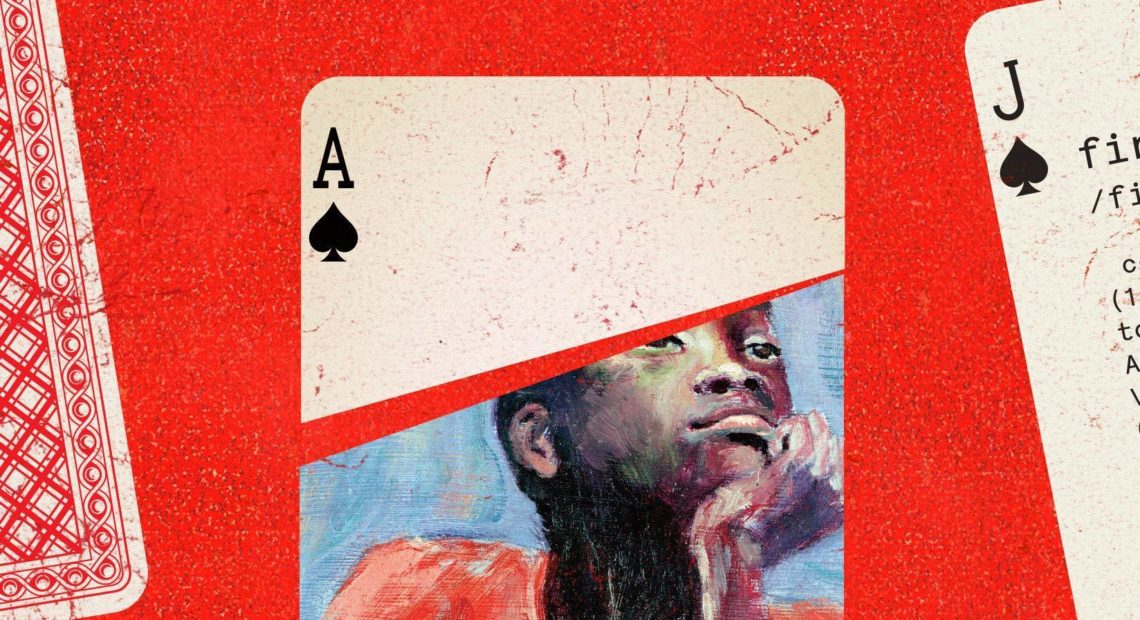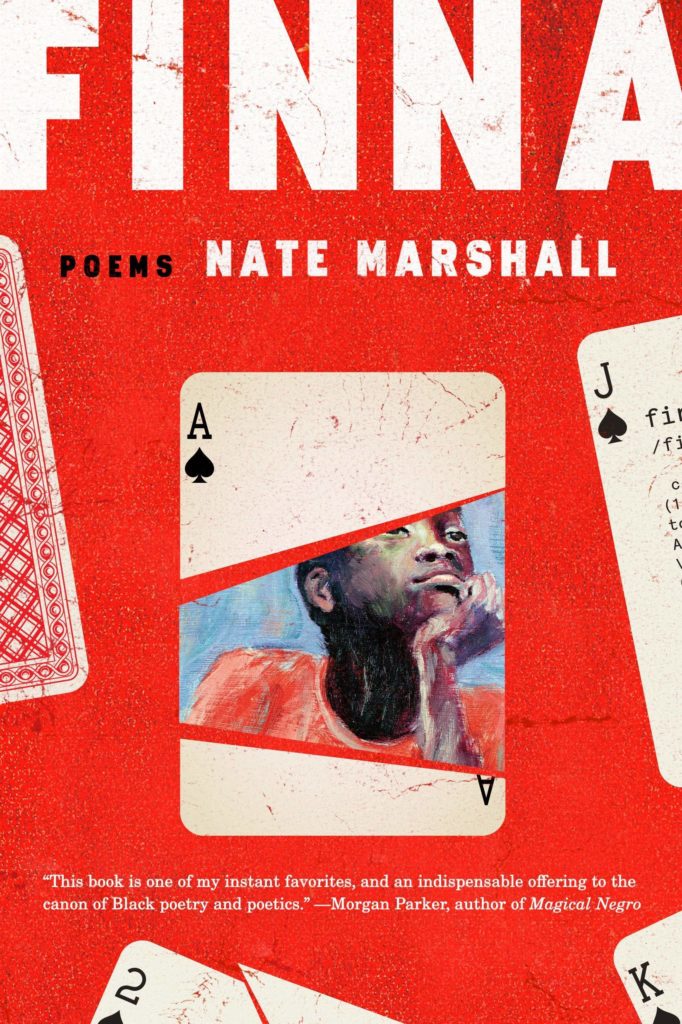
In ‘Finna,’ Poet Nate Marshall Is ‘All About What Happens Next’
LISTEN
BY SCOTT SIMON
Nate Marshall has a new collection of poems. It’s called Finna, and he says the title of this new book comes from the Southern phrase “fixing to, right, which is like ‘about to.’ One of the things that I love about that, and that is a kind of central thing in the book, is it’s all about what happens next. It’s this thing that is informed by history, but that is all about looking forward, all about possibility. That’s sort of what I hope the poems do, is that they I hope they sort of wrestle with history, but also look forward.”
Marshall’s previous book of poems, Wild Hundreds, was wildly acclaimed. He has also written plays and released three hip hop albums, and is a leading poetic voice of Chicago’s South Side.

Finna by Nate Marshall
Interview Highlights
On how he came to poetry
So my grandmother was, she was a librarian. She passed away when I was 16. She was just a person that always, like, put books in my hands, I remember even as a kid, like, she kept two dictionaries underneath the table of the kitchen where we would always sort of sit together. And whenever she said a word that I didn’t know, I’d be like, “yo, grandma, what is that?” And she’d help me sound it out, and spell it out, and then look it up. And from that, I kind of started to just look for interesting words in the dictionary. And I think that was, you know, in many ways the beginning of like, a real engagement with language.
On how poetry shapes the way he sees the world
I think — OK, I’ll tell you the point at which I knew I was a poet. I was 16, it was maybe a few weeks after my grandmother had passed, I was taking the bus home from high school and I’m getting off the bus. And these four guys jumped me, right? They were on the bus. They came off the bus behind me. One of them grabbed me and like, they sort of ganged up on me or whatever. Right. This all probably happens in, like, less than a minute. I’m fine, but I’m shook up and, you know, a little battered. Once they sort of ran away and I realized I would be OK. The first thing that I thought was, man, this is going to make a good poem … So I guess like if that says anything about how poetry shapes the way I see the world is, I think I’m always thinking about how does the lived life translate onto the page.
This story was edited for radio by Andrew Craig and Kitty Eisele, and adapted for the Web by Petra Mayer
9(MDAyOTk4OTc0MDEyNzcxNDIzMTZjM2E3Zg004))















